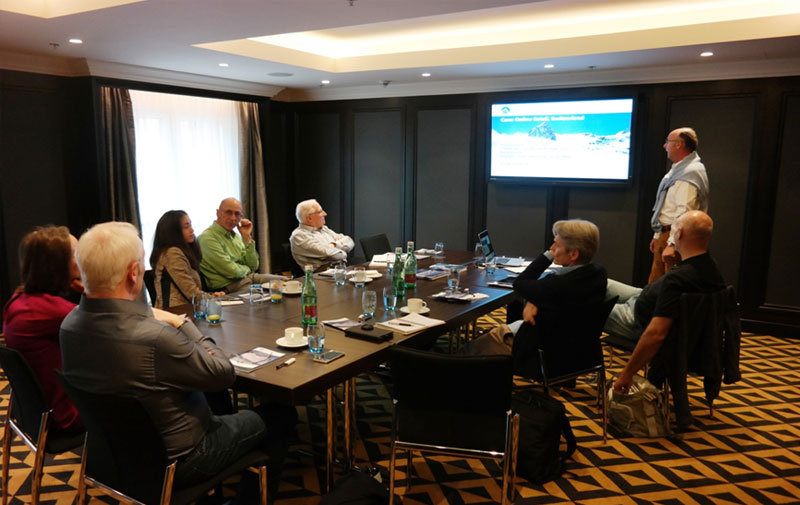You want everyone in your organisation tuned in to shared goals and ways of working. Organisations should actively encourage it – developing a unique vocabulary and culture that makes the whole more than the sum of the parts. Groupthink.
So why can that be an issue? Research from Irving Janis at Yale, and recently Cass Sunstein and colleagues at Harvard Law School suggest that groupthink can also encourage polarised ideas and conflict. Like-minded people get together to discuss the common interest. They have similar but different experiences, so that when they share them, the group as a whole moves towards the extreme position. Also, as we all want to be liked, we tend to fit in to maintain our reputation in our own eyes as well as in that of the group.
We can even indulge in this on our own – any Internet search produces all we ever wanted to know about anything, so that we are engaged with many like minds even though we have never met. Our search obviously only produces information on the topic searched so tends not produce many rounded views. There’s simply little possibility of any critical evaluation of alternative viewpoints.
We’ve all seen plenty of examples of how this polarised thinking can lead to sectarianism, jihadist behaviours, extreme political parties and even wars. In a business sense, everyone in the business knows – it’s that shared vocabulary and culture. But do they really? Might this produce agreement for the wrong reasons? Sometimes it is boss led – no one disagrees because that might harm their career chances. Short term that might be okay, as long as the boss is always right and the firm survives or flourishes. But as the business grows, it’s more difficult to run it solely from the top. The boss is too busy; exhausted by constantly having to be all knowing, as there is little delegated decision-making. The boss also has to have all the good ideas, which traps him or her on a constantly faster paced treadmill. Nobody learns anything – and after time it becomes “we’ve always done it that way”. That is dangerous in a fast paced, constantly changing world, where you have to be flexible in thought and action.
To counter groupthink simply invite alternative points of view from outside the firm. That can be from people like us, experienced mentors and facilitators with a wide client base, or customers, for they are the sole arbiters eventually of how good the business is. Perhaps also use networks with other noncompeting businesses to exchange ideas and deliberately seek opposing views. Use the Internet!
The rationale is to force reflection, find understanding of others’ points of view, and attempt to find consensus. This doesn’t mean giving in to something you inherently don’t believe in – that’s another form of polarisation. Simply acknowledging that other points of view can be valid and finding an understanding will help. You have to counter the “everybody is talking about it” method of validating an argument. That really means everybody who is talking about it that you have encountered, is talking about it. How many is this? It’s possible that everybody else isn’t. So what are they saying and who are they? Should you know? How do you make good decisions about your firm’s direction and purpose with a narrow view based only on internal perceptions? Simply, you can’t. You need to keep the shared vocabulary and culture, but you need to question beliefs as well – look outside. That way you get the best of both worlds, and avoid groupthink.
